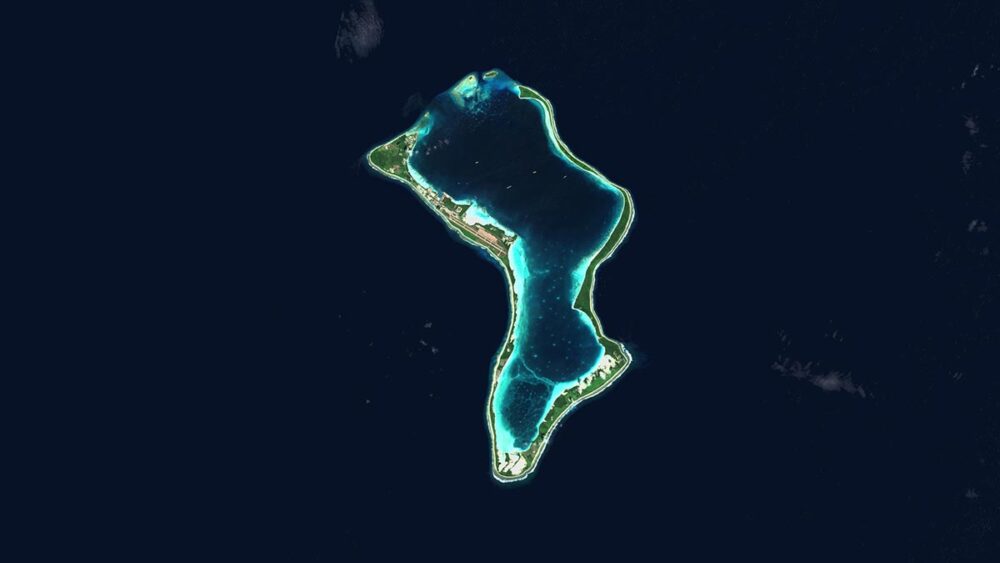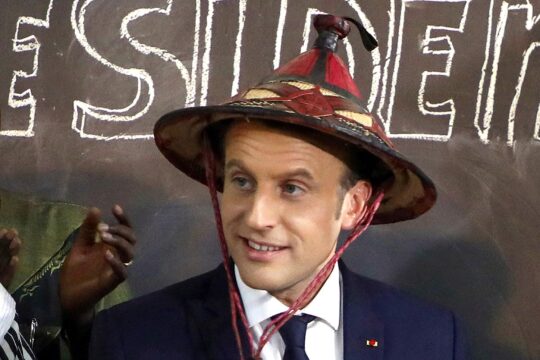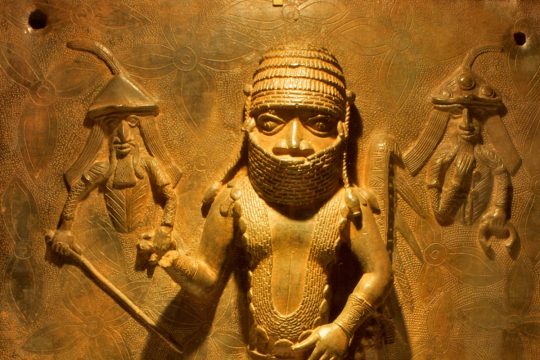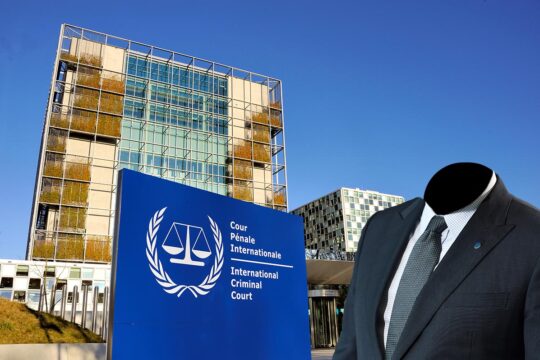“Are we waiting for the time when there will be no natives to deal with the UK government? It will be too late,” says Olivier Bancoult, head of the Chagos Refugees Group. He’s been campaigning for many years for the rights of his people to return to the tiny archipelago of islands from which they were removed in the 1960’s.
“The Prime Minister of the Republic of Mauritius and the Prime Minister of the United Kingdom of Great Britain and Northern Ireland today confirm that they have reached an historic political agreement on the exercise of sovereignty over the Chagos Archipelago”, reads the joint statement of the two states published on 3 October 2024.
At the heart of this deal presented by the UK foreign secretary in the House of Commons on 7 October 2024 is “a recognition of past wrongs”. But David Lammy also called it “a victory for diplomacy”. Others say it’s about an indigenous peoples’ right to reparation and maybe their right to return to their native land. For other commentators, it may be a victory for international law processes or the beginning of the end of the long process of decolonisation.
Each way of looking at the planned treaty between the UK and the government of Mauritius involves a different set of principles and national interests. And the views of the Chagossian people, numbering only around ten thousand persons, risk being lost in the continuing competing search for the correct solution.
Rulings by the ICJ, ITLOS and UK courts
No details have been made public yet about the UK’s new treaty – yet to be signed and ratified – with Mauritius. The UK foreign secretary framed it to British MPs as the solution to an unsustainable status quo that was affecting the UK’s relationship with the United States. Why? Because a US base was established on the island of Diego Garcia, for which the UK ensured there would be no inhabitants by removing the Chagossians. After multiple court cases, Lammy said “it was just a matter of time before our only choices would have been abandoning the base altogether. Or breaking international law”.
Securing that base and UK relations with the US propelled the discussions with Mauritius, following the International Court of Justice (ICJ) advisory opinion ruling in 2019 which agreed with Port Louis’ contention, that the islands belonged to them as part of the process of decolonisation. That ruling was followed by an International Tribunal on the Law of the Sea (ITLOS) judgement which supported the maritime delimitation of Mauritius in relation to the Maldives, based on their sovereignty over the islands. Other national cases through UK courts have focused on the rights of the Chagossian people and provided limited compensation to a handful.
A treaty for the rights of the Chagossians?
The undisclosed treaty has been criticised by some Chagos rights groups as not inclusive of their views. Bancoult disputes that: “I can assure you that the [Mauritian] prime minister did everything every time he had a negotiation, he had a consultation with our Chagossians to let them know how the thing was moving. Every time.” Clive Baldwin from the NGO Human Rights Watch says however that “too many times, starting from the 1960s, deals were done about the Chagossians without them, when limited money was paid for as charity or development, not as compensation”.
In a very detailed 2023 report, Human Rights Watch has outlined both the history of failures to deal with the needs of the exiled community and the multiple ways in which the UK authorities have broken international law. “It’s a crime against humanity. It’s forced displacement, it’s prevention of return. And it’s also – because of the evidence of the racism we found – persecution on the grounds of race”, says Baldwin, the report’s author. And if the issue is not resolved, it will continue to be a problem for the UK, he says. “If they don’t, it’s going to stay with them.” It is notable that this year, the UK is running a campaign to regain a judge’s seat at the ICJ via the candidature of Dapo Akande.
But Baldwin is concerned that the potential treaty may not address some of the fundamental legal principles, and therefore, the needs of the Chagossians. “I don’t think it does address the wrongs of the past. The government says there will be substantive assistance for the welfare of Chagossians. But none of those are rights. So the problems are: does it recognise a right for the Chagossians to return to the home? It doesn’t; and where does the money go?”, he asks. “Any acknowledgement of their rights is why we say the word reparations matters. The UK hates it because of the precedent. But this is one of the clearest-cut examples of reparations for not just historic wrongdoing, but current wrongdoing. And as we said, applying the principles of reparations would mean the right to return, and the restoration of the island so they can return.”
A 99-year lease that could end up into perpetuity?
Ottilia Anna Maunganidze of the Institute for Security Studies in Pretoria, South Africa, suggests that those fundamental legal and human rights principles and how the deal plays out for the Chagossians will depend on the precise terms of the initial agreement on sovereignty. According to Lammy, the UK has ceded sovereignty. But, he said, there is already an agreement with the Mauritian negotiators to a 99-year lease, which essentially shores the UK up with their security ally, the US, and their access to the base in Diego Garcia.
Earlier this month though, opposition forces won the general election in Mauritus. Based on the just concluded elections, says Maunganidze, “if I were to look into a crystal ball, I would say that the negotiation on Diego Garcia is likely not going to be harder for Mauritius, but a point for which they may be less willing to negotiate on, and perhaps move away from the proposal of a 99-year lease, which, as we know with a lot of 99-year leases, can end up being into perpetuity”.
She suggests that the new government may push for rather “clearer terms around the use of not the entire territory of Diego Garcia”, with “a similar arrangement, as what we see with US or other foreign military presence in otherwise sovereign countries”, like Djibouti. “So it is more likely that they would lean towards a full assertion of sovereignty over the entire territory of the Chagos Islands with the understanding that any leasehold or any presence by the US and the UK in Mauritius, as it will then fully be, would be essentially almost in a host country agreement kind of way”, she concludes.
The British “still don’t want to use the term reparations”
Any rights of the Chagossians to return, their right to repair of their homeland, to access, to jobs, to livelihood, would be subject to whatever actual terms are in the treaty. “If there’s a restriction to Mauritian sovereignty, then whatever terms need to be negotiated, they have to be agreed on first, before we go to the next stage”, Maunganidze says.
Baldwin is clear that in law, “all the Chagossians have a right to return”, but he says there is resistance in London to the establishment of that principle and that the British “still don’t want to use the term reparations”, even though they have accepted the forced displacement was “our responsibility”.
With the change of government in the UK last June, the negotiations seem to have been able to move forward. This is a moment when it’s for the UK “to be able to acknowledge its role”, says Baldwin. But in addition to the changes in London and in Port Louis this month, now there’s the knowledge of change in government in the United States in January 2025, so there may be only a small window within which to resolve the issue.
“It’s an urgent moment”, says Baldwin, because it’s fifty years after the last Chagossians were deported, including those who were babies at the time, a last chance for those who were actually born on the islands to be able to return. That means now is the “best opportunity” for the UK to do the right thing, but “it needs to be doing so with the Chagossians”, he cautions.
Is this example of International law working?
The ruling by the ICJ and the subsequent behind the scenes negotiations culminating in the announcement of the putative treaty was welcomed by some players as a vindication for international law processes; that if only enough political pressure is put on states via the courts, change will occur. Baldwin agrees that “it does show the impact of advisory opinions and therefore the importance of advisory opinions addressing the issues around human rights, reparations, succession”. But he cautions that although “the advisory opinion addresses the failure to decolonise the territory quite clearly and talks about the Chagossians, it doesn’t come up with any very clear responsibility”, and therefore may fall short.
Maunganidze acknowledges that small states are now more regularly seeing the opportunities that international courts may afford, even though, she says, Mauritius may not be the best example. “This was not, by any measure, the easiest process to follow.” But advisory opinions are now providing an avenue, “even where it is one state that has put forward the application, for many more states, small and sometimes big, submitting their declarations to intervene”, she says. And “when you do have a critical mass of countries, whether they’re small or whether they’re large, that has the potential to tip the scales in terms of where the decision lies.”
But the proof of the effects of international courts will always be in what happens in the real world. “I would throw in a slight word of caution”, says Maunganidze, “that even where they are binding decisions, whether it’s at the ICJ or elsewhere, the real challenge relates to implementation.” And in the case of the Chagos islands, the implementors are the states.








